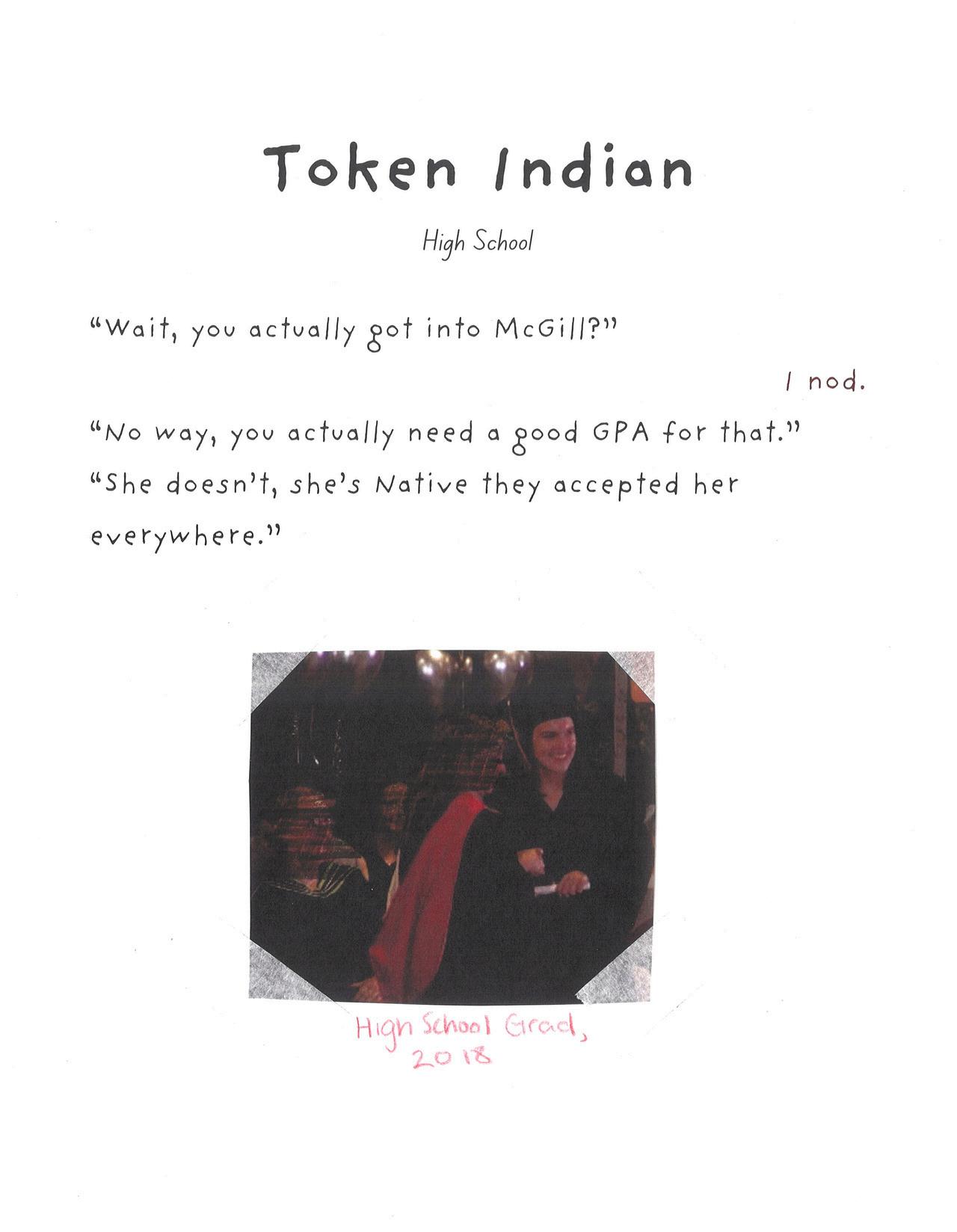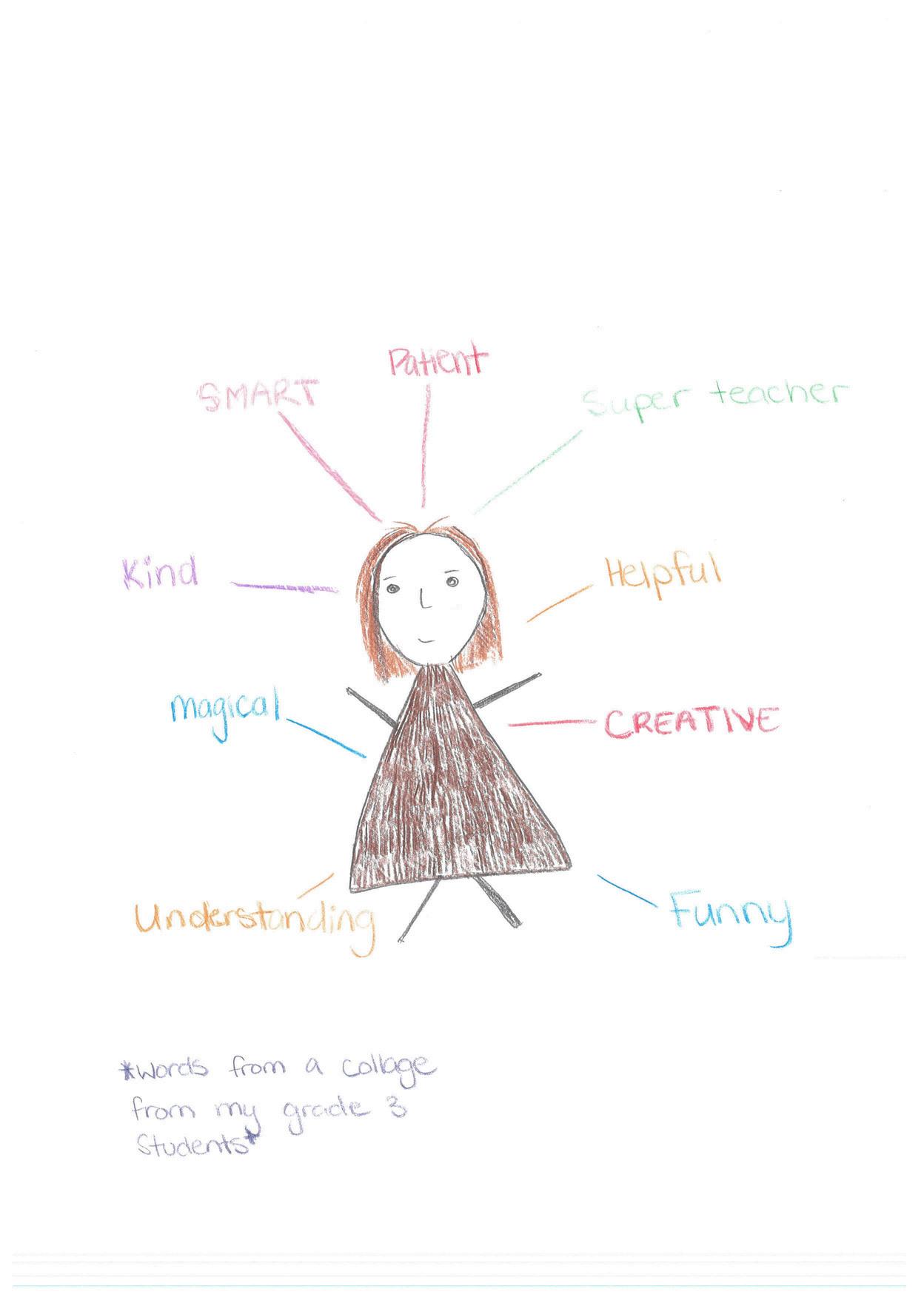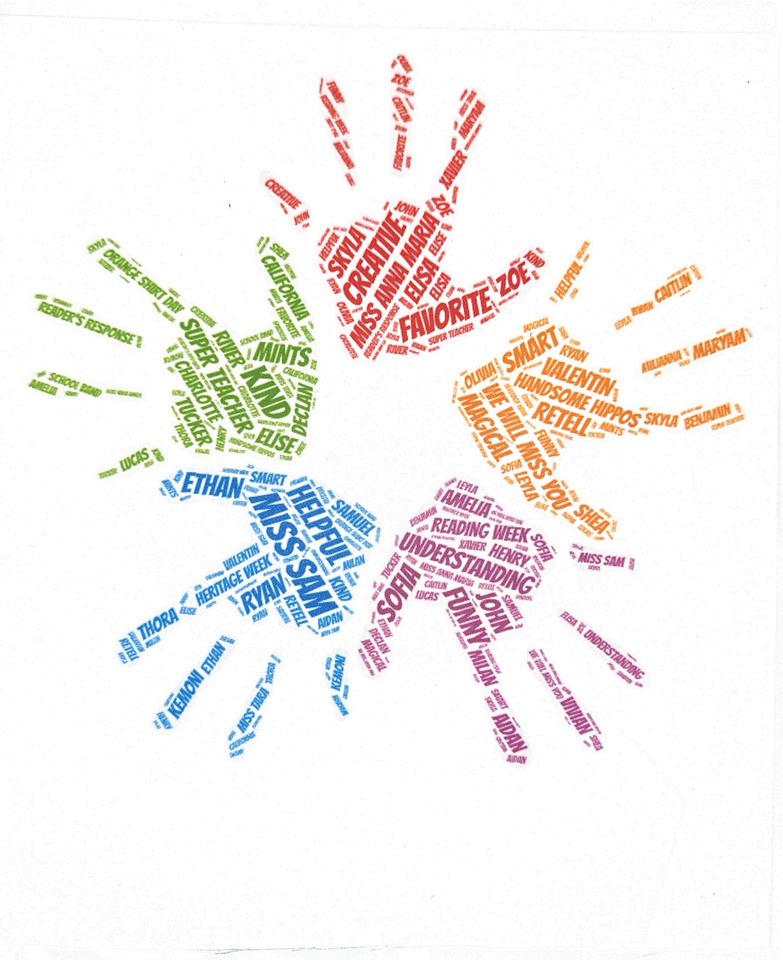stories put onto me

a zine by Sam

My mom stayed home with us while my dad worked. When my brother was old enough, my mom would volunteer at school as a lunch monitor (and bring my brother with her). When my brother was in school, my mom started to work at the schools as admin replacements and eventually at the school board. The school board office was right across from my high school, so when I started grade 9, my mom drove me to school every day. My mom’s parents came to Canada from India. They are Zoroastrian, and my mom raised us the same. You know the way some Christian people only go to church on Easter and Christmas, we’d celebrate Navroze (and also Christmas). My mom’s family is the family I grew up with – the family I know. My grandma is my best friend, and I love to learn about our culture, and history from her. She is my only grandparent who has a college degree – a B.Sc. in Zoology from Nowrosjee Wadia College, Pune. For a woman born in India in the 1930’s, that’s no small feat.
I grew up knowing we were Parsi/Irani. I grew up learning Zoroastrian prayers. I grew up hearing about my mom’s parents lives in India, and as immigrants in Montreal. I also grew up being told I look just like my dad – same pale complexion. I grew up seeing visible differences between my cousins and us. I grew up knowing my dad was born in New York, that we had American citizenship, and that we should never bring it up (“just tell people you’re Canadian”). I did not grow up knowing my dad was Indigenous. I did not grow up knowing my grandfather went to residential school. I did grow up knowing he could be mean and intense, and that he only spoke French. I did not grow up knowing that he also spoke his language, and that we were Innu.

This was in the sixth grade. The extent of our education on Indigenous peoples in elementary school up until this point was one unit in grade 3 where we had to design our spirit masks and choose a spirit name (which we called each other for the entire unit) We learned about Algonquian and Iroquois nations and how they hated each other.
The week this happened we had an assembly in the gym about Indigenous people, from an Indigenous person (I think) I don’t remember what it was fully about, but I remember they talked about significance (or importance) of Eagle feathers. I remember thinking “I wonder if my dad has a feather somewhere.”
This was around the time that I learned that my dad was Indigenous, and that I was also Indigenous. But what did that mean?
When the kid in my class asked, “What are you?” the only possible responses I could think of were Iroquois or Algonquian…



THIS was crazy. I spent the first 6 months of my undergrad in bed, not eating, binging Drag Race and coming to terms with a horrible reality of abuse from a high school relationship. I had no friends because why would people be friends with the girl who is constantly having panic attacks and can’t keep food down
Eventually I made friends there, everything’s fine But one of those friends decided to get me a gift when she was out one day.
She didn’t want to show me the gift she got, but when she finally did, she was laughing, and I went silent I took it, left to my room Cried for a minute Got very drunk Went upstairs to yell at her for being unchangeably racist. And told her that the shot glass she got our other friend was really cute.
“At least they got an education…” McGill, Zoom U
Breakoutroomsopen.
*Ithinkweweresupposedtobetalkingaboutthe impactofresidentialschools?*
“*validanswer*”
“*validanswer*”
“Theconditionsweren’tgood,butatleastthechurch brought them education. Otherwise, they didn’t have accesstoschool.”
*silence*






McGill B.Ed. programs need to start prioritizing cultural safety and respect for lived experiences of the “diverse classrooms” that they love to say they’re preparing us (pre-service teachers) for.
We need courses on anti-Black racism and settlercolonialism and to understand how these theories are so deeply rooted in our society’s structure(s) that we cannot escape them. We need to acknowledge the impact that they have on our students and recognize the responsibility we have in stopping the spread of stereotypes and injustices, even if only in our classrooms
Because these are the people that are becoming teachers. These are the people that are teaching history, and social studies, and overall social skills and behaviours.

I don’t think I ever considered myself “not white” until this job experience. If you look at me, I am white, I have all the white privilege in the world when I walk around. That privilege is not something that has gone away as I discover new parts of my identity and what they mean to my lived experiences
I understand that what was meant was “the other candidates have white, Eurocentric settler lived experiences,” and that my lived experiences are not that.
But what I heard, and what I felt was an obligation to speak on behalf of all marginalized experiences and stories when my own can only address one very unique perspective. And I had to do it alone, which felt even more inequitable.
But I was able to change that and fight for two positions after I left

I think my depression takes residence in my face and/or outward appearance, because I still don’t know what prompted this teacher – paid MENTOR teacher –to warn me against taking my own life.
We work in Special Education. My classroom of students were unable to advocate for themselves - for what they need and want, for what the deserve I am also, generally a bit of an outspoken person when it comes to speaking on injustice. I think that act of constantly wanting to disrupt the ‘norm’ doesn’t sit well with people. And, as she was running the school in an obvious sense, this lady was the spokesperson for the ‘norm’
I don’t think I was always a person who spoke up, but maybe I was. At least now, in a lot of scenarios, that’s what I’m seen as doing. I do think it’s my responsibility as a teacher to advocate for my students. And I do think it is my responsibility as a person with privilege to speak against injustice



